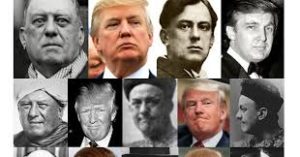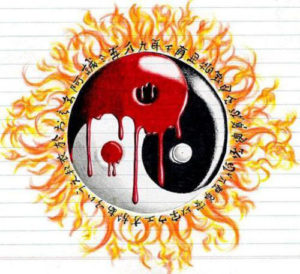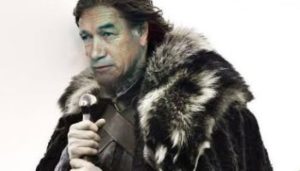
Aleister Crowley, love him or not, saw further beyond than almost anyone. He skewered the establishment of his day with his withering sarcasm and wit, and established himself as one of the premier iconoclasts of all time. The mind boggles at what a genius like Crowley would have made of our modern age.
This article discusses the applicability of one particular quote of Crowley’s to the rise and rise of Donald Trump, namely:
The essence of independence has been to think and act according to standards from within, not without. Inevitably anyone with an independent mind must become “one who resists or opposes authority or established conventions”: a rebel. If enough people come to agree with, and follow, the Rebel, we now have a Devil. Until, of course, still more people agree. And then, finally, we have — Greatness.
This “essence of independence” has a paragon in our culture today: Donald Trump. Let’s take this quote sentence by sentence.
It can’t be denied that Trump acts according to standards from within: indeed, this is one of the reasons why he has caused so much consternation. There are no gurus or mentors who can be examined for clues as to Trump’s influences, and he is not an ideologue of any known stripe.
Because it’s so difficult to slap such a label on Trump it’s obvious that he must be a highly free-thinking man. But, as any free-thinking person reading this article will know, to think freely is to incur social pressure intended to force you back into the herd.
The agents who exert this social pressure are the extremely powerful men and women of silver, and they are the authority in the sense that they control the media and the government and therefore are the psychological programmers of the populace.
Trump was firmly in the ‘rebel’ stage when he first announced his presidential bid. He was laughed at, like teenage rebels tend to be. Not taken seriously, a clown, a buffoon. The purpose of all this social pressure was to bring Trump back to the herd, to coerce him into bowing the knee before the masses.
He refused, and won the Republican nomination. The Hitler comparisons began – Hitler being perhaps history’s prime example of an independently-thinking politician. Because Trump won’t be cowed by the bleating of the masses, the logic went, he would inevitably start another world war.
That Trump was self-funded, and thus able to act independently of the money men who seek to make all politicians into whores in exchange for putting them on the throne, was made out to be a negative. It was as if, by not grovelling before those who had set themselves up as the powerbrokers, Trump had committed a heresy.
This was the moment he transitioned out of rebellion and into devilry. Every single day, the New Zealand media had a headline piece about how Trump was evil and if he became President we would definitely all die in nuclear hellfire.
As we now know, even this didn’t stop him, or the Trump voters. Donald Trump duly won the Presidential election by a considerable margin, and in doing so set himself up for greatness.
One might argue that, in becoming President of the United States that Donald Trump has already achieved greatness. However, a look at the recent alternatives for the role – Hillary Clinton, Obama, George W. Bush, Mitt Romney – tells us that the standards are very low indeed.
Certainly with the world being a powderkeg right now, Trump has an unprecedented opportunity for greatness. Whether he takes it is a matter of Fortune and Will.




